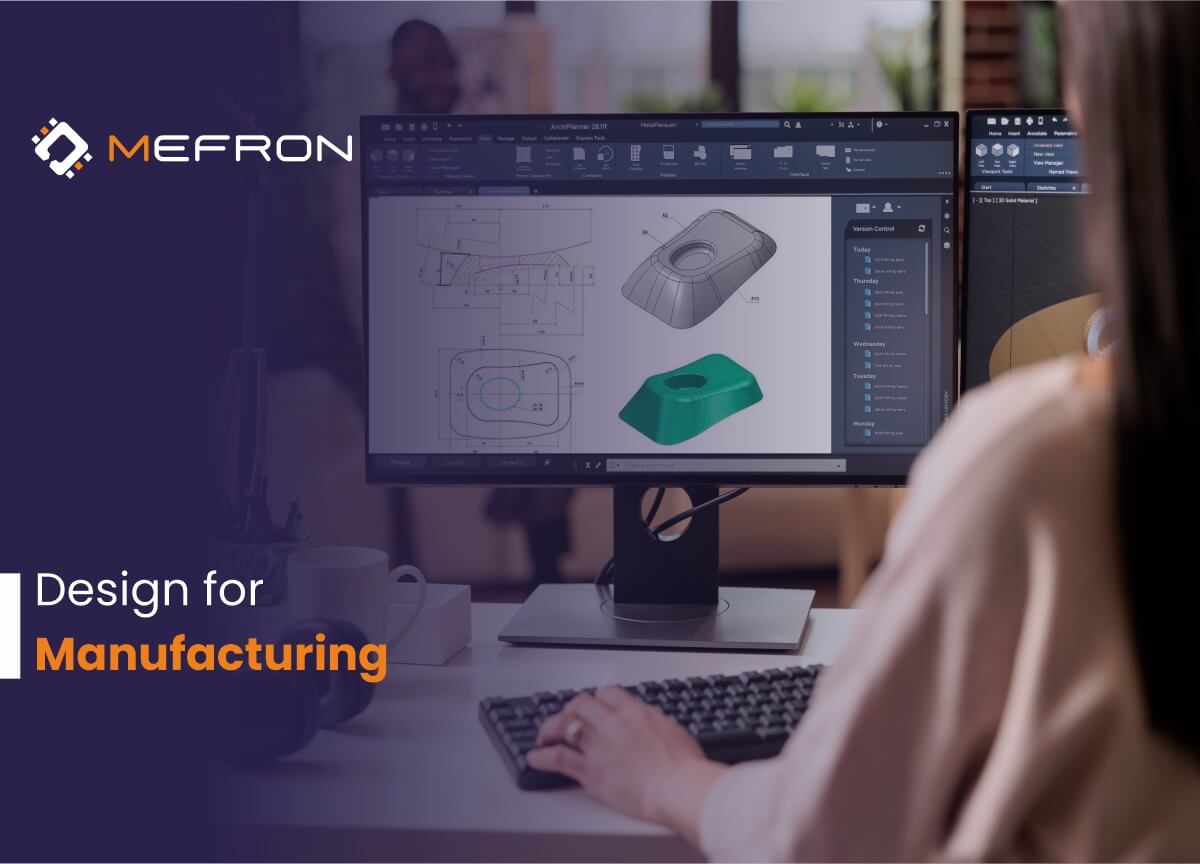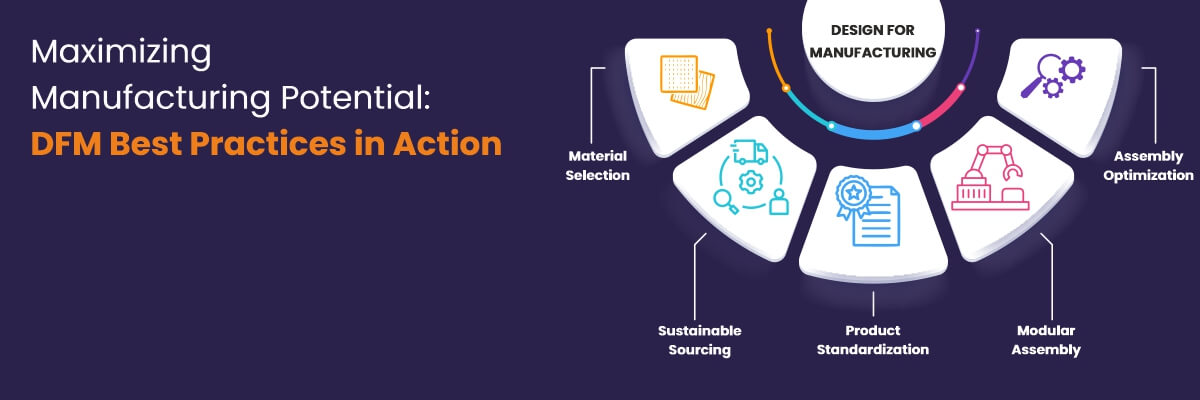Overcoming Design Challenges with Design for Manufacturing (DFM) Principles
23 April, 2024 Posted by Gaurav Gorse

In the competitive realm of manufacturing, the strategic choices made by companies can lead to vastly different outcomes. Take for instance two hypothetical entities, Company A and Company B. Company A, recognizing the importance of efficient production processes, wisely invests in Design for Manufacturing (DFM) services. On the other hand, Company B exhibits resistance towards such optimization efforts, instructing its Contract Manufacturer (CM) to fashion intricate metal sculptures, resulting in convoluted designs and prolonged production turnaround times.
The consequences of these decisions become evident over time. Company A, bolstered by their investment in DFM, enjoys streamlined operations and enhanced profitability. Their foresight in proper planning and optimization grants them a competitive edge, leading to sustained growth and success. Conversely, Company B finds itself grappling with the ramifications of its choices. The cumbersome manufacturing process, characterized by costly raw materials and a demand for highly skilled labor, exacts a heavy toll on the company's financial health. As profits dwindle and sales falter, Company B faces a stark reality: the once-promising venture must be shuttered.
In this narrative, the divergent paths of Company A and Company B illustrate the profound impact of strategic decision-making in the manufacturing sector. While Company A thrives due to its embrace of efficiency-enhancing practices like DFM, Company B's reluctance to adapt ultimately seals its fate, underscoring the critical importance of foresight and adaptability in today's competitive business landscape.
Design for Manufacturing:
Slashing Costs, Streamlining Production
In today's competitive landscape, manufacturing is a delicate balance between innovation and cost-efficiency. While groundbreaking product designs can excite the market, if they're impossible to build within a reasonable budget, your brilliant idea remains just that – an idea. This is where Design for Manufacturing (DFM) becomes your secret weapon.
What is Design for Manufacturing (DFM)?
At its heart, DFM is about shifting the design mindset from pure aesthetics and functionality to how your product will actually be constructed. It's about designers and engineers collaborating closely with manufacturing experts from the very outset. Imagine putting on a manufacturer's hat and asking the tough questions early on:
Can this intricate shape be easily machined, or does it require hours on an expensive 5-axis CNC?
Is this exotic material readily available worldwide, or will it cause supply chain delays and inflated costs?
Does this assembly involve 20 tiny, easily lost screws, or could it be simplified with interlocking parts?
The Power of Early Intervention
One of the most powerful aspects of DFM is that it tackles issues proactively. A seemingly minor design choice in the early concept phase can snowball into a massive cost driver later in production. Let's illustrate this with an example:
Imagine you design a sleek electronic device enclosure. In your initial renders, it has softly rounded corners that look aesthetically alluring. However, during the DFM review, the manufacturing team explains that those curves require speciality tooling that significantly increases the cost per unit. By making a slight adjustment – perhaps a subtle chamfered edge instead – you can retain the overall aesthetic while making the product far easier and cheaper to produce. This is the type of early intervention that DFM focuses on.

DFM Best Practices: A Designer's Toolkit
Let's dive into some specific DFM strategies to incorporate into your designs:
Material Mindfulness:
Explore alternative materials that may offer similar properties at a lower cost or with more reliable sourcing. For plastic bodies, consider switching from an engineering resin with unique properties to a more common grade that can still meet the structural requirements. You can also explore using fillers or blends to achieve a balance of cost and performance.
Part Consolidation:
Can multiple components be combined into a single part? This reduces assembly steps, simplifies inventory management, and lowers overall production costs.
Tolerance Talk:
Overly tight tolerances can cause a huge spike in manufacturing complexity. Work with your manufacturing team to understand realistic achievable tolerances and design within those parameters.
Standardization is Your Friend:
Design with commonly available components and fasteners whenever possible. Custom parts often come with long lead times and inflated prices.
Think Ahead to Assembly:
Complex or time-consuming assembly drives up labor costs. Consider snap-fits, self-locating features, and designs that minimize the need for specialized tools.
The DFM Advantages
While reduced manufacturing costs are a significant draw of DFM, its benefits extend much further:
Faster Time to Market:
DFM-optimized designs face fewer production hurdles, allowing you to launch your product faster.
Improved Quality:
By preventing manufacturability issues in the design phase, DFM boosts product reliability and lessens the risk of defects.’
Enhanced Collaboration:
DFM fosters a spirit of partnership between design and manufacturing, driving innovation across the board.
Embracing the DFM Benefits
Implementing DFM can feel like a paradigm shift for teams accustomed to traditional design workflows. However, the potential rewards are vast. By thinking about manufacturability from the first sketch to the final production run, you position your products for market-winning success. Remember, DFM is not about sacrificing brilliance; it's about making brilliance achievable.
Unlock Manufacturing Efficiency with Mefron's Expert DFM Services
At Mefron, we understand the unique challenges inherent in each project. We are committed to delivering value to our clients by applying proven DFM methodologies, ensuring optimized production time, cost savings, and superior manufacturability. Our skilled design engineers have proven expertise in tackling even the most complex projects. Since our inception, we've built a track record of successful DFM collaborations across diverse industries.
Let us partner with you to streamline your product development process through integrated Design for Manufacturing and Assembly (DFMA) solutions.
For business-related inquiries, please write to us at sales@mefron.com.